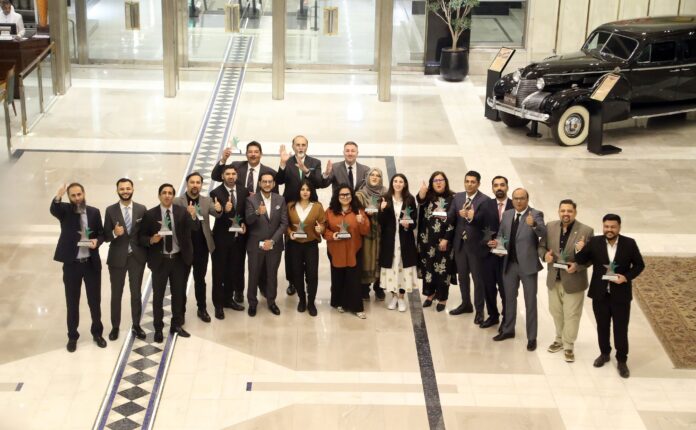Islamabad: Muhammad Amin Virk, Chairman of Fair Trade in Tobacco, expressed grave concerns during a media talk held in Islamabad about recent reports indicating the government’s plans to increase excise taxes on tobacco products. He highlighted that such measures would disproportionately harm tax-paying legal tobacco companies while incentivizing the growth of illicit trade.
“Instead of further burdening the already tax-compliant legal tobacco sector, the government must focus on enforcing the existing tax regime on illicit cigarette manufacturers operating in Khyber Pakhtunkhwa and Kashmir,” said Virk. “These entities control 63% of the market but contributed a meager Rs. 5 billion in taxes during FY2023-24. This blatant tax evasion undermines the national exchequer and incentivizes unlawful activities.”
Refuting claims made by foreign-funded local think tanks that increasing excise taxes reduces smoking rates, Virk stressed the contrary. “Raising taxes on tax-compliant brands does not discourage smoking; it drives consumers toward cheaper, illicitly traded brands that defy all federal and provincial health and commercial laws. These brands are sold below the Minimum Legal Price (MLP) and continue to dominate the market,” he emphasized.
Virk revealed shocking figures: “Out of nearly 300 local tobacco brands, only 15 pay taxes and adhere to Track and Trace System (TTS) requirements. The remaining brands, whether smuggled or illicitly produced, flout every local regulation, including taxation, pricing, and public health laws. These entities are bleeding the nation’s economy dry.”
He appealed to the government to prioritize implementing the current tax regime and ensure equitable taxation. “The solution is not overburdening the tax-paying legal sector but holding tax evaders accountable. Universal enforcement of the TTS and strict regulation can potentially boost Pakistan’s annual tax collection from Rs. 300 billion to Rs. 700 billion,” Virk asserted.
Virk also called attention to the importance of the tobacco sector in agriculture. “Tobacco is deeply integrated into Pakistan’s agricultural ecosystem, supporting thousands of farmers and workers. The legal tobacco sector paid nearly Rs. 300 billion in taxes last year. Imagine the possibilities if all manufacturers paid their fair share,” he concluded.
Virk called for the universal enforcement of the Track and Trace System across all tobacco manufacturers to ensure transparency and accountability. He advocated for a rationalized excise tax policy that promotes equitable implementation across the sector, preventing undue burden on tax-compliant businesses. He highlighted the untapped economic potential of the tobacco industry, stressing that effective regulation and universal taxation could significantly enhance revenue collection without harming the legitimate players in the market.
The media talk emphasized that rational reforms in the tobacco sector are essential for economic stability, curbing illegal activities, and promoting fair trade. Virk appealed to the government to decisively protect Pakistan’s fiscal and agricultural landscape.
Increasing Excise on Legal Tobacco to Fuel Illicit Trade: Amin Virk






